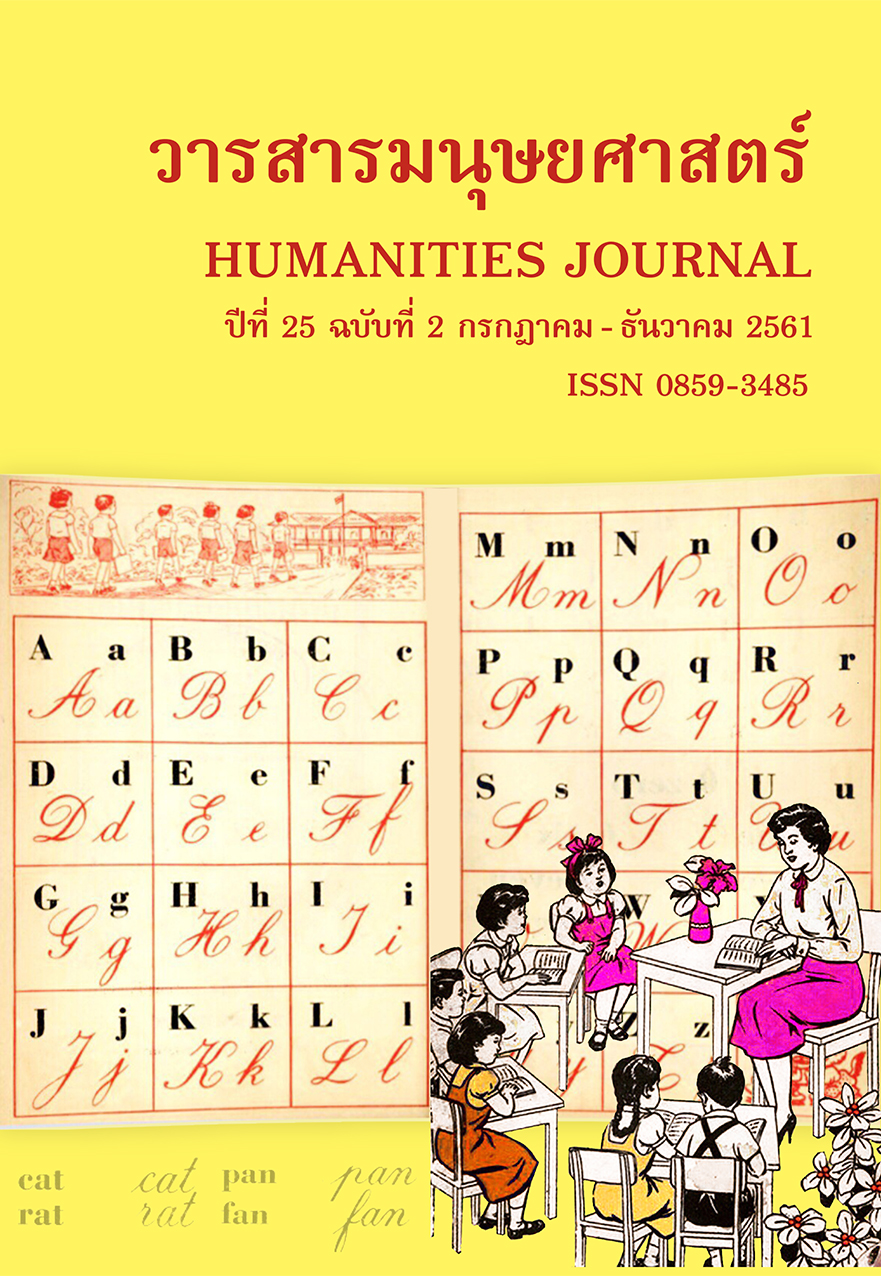ความย้อนแย้งในอุดมการณ์และการลิดรอนความเป็นมนุษย์ ในเรื่องเล่าบาดแผล เรื่อง Escape from Camp 14
Main Article Content
Abstract
A traumatic narrative is a genre of literary work which ill-fated victims use to help readers to access to their traumatic experiences. This genre of literary work is also used as a therapeutic tool for healing victims’ painful experiences. The victim’s attempt to tell experiences is a way to review and re-interpret their traumatic past in order to come to terms with it and liberate themselves from a haunting nightmare. In Escape from Camp 14, written by Blaine Harden, the non-traumatized author, acts as a medium to narrate in excruciating detail the life and odyssey to freedom of Shin In Geun, an internment camp prisoner in North Korea. Shin’s narrative reveals the brutality of the North Korean communist regime led by the Kim family. Shin’s story also shows the ideological paradox of North Korea’s communism which hides atrocities and dehumanization behind a façade of upholding communist principles of equality among the people of all classes. This research paper focuses on the study of Shin’s traumatic narrative as a venue of constructing the victim’s identity and the representation of North Korea by Western media. My analysis of Shin’s narrative also reveals North Korea’s ideological paradox and the dehumanization occurring in prison camps in which political prisoners are incarcerated.
Article Details
References
สรณัฐ ไตลังคะ. (2552). ลับแล, แก่งคอย: อำนาจของเรื่องเล่ากับการทำลาย/สร้างตัวตน. วารสารภาษาและหนังสือ. 40. 99-109.
Blanch, A., Filson, B., and Penney, D. (2012). A Guidebook: Engaging Women in Trauma-Informed Peer Support. SAMHSA’s National Center for Trauma-Informed Care.
Brock, M. (2013). A Teacher’s Guide to Escape from Camp 14 by Blaine Harden. New York: Penguin Group.
Cregan, K. (2006). The Sociology of the Body: Mapping the Abstraction of Embodiment. London: SAGE Publications.
Harden, B. (2012). Escape from Camp 14: One Man's Remarkable Odyssey from North Korea to Freedom in the West. London: Viking Penguin.
Laub, D. (1995). “Truth and Testimony: The Progress and the Struggle”. Trauma: Explorations in Memory, edited by Caruth, Cathy. Baltimore: The Johns Hopkins UP, 61-75.
Mollica, R. F. (2006). Healing Invisible Wounds: Paths to Hope and Recovery in a Violent World. Nashville: Vanderbilt University Press.
Névine El Nossery & Hubbell A. L. (2013) The Unspeakable: Representations of Trauma in Francophone Literature and Art. Newcastle: Cambridge Scholars Publishing.
Rogobete, I. C. (2015). Reconstructing Trauma and Meaning: Life Narratives of Survivors of Political Violence during Apartheid in South Africa. Newcastle: Cambridge Scholars Publishing.
Scott, N. (2007). Monsters and the Monstrous: Myths and Metaphors of Enduring Evil. Amsterdam and New York: Rodopi.


